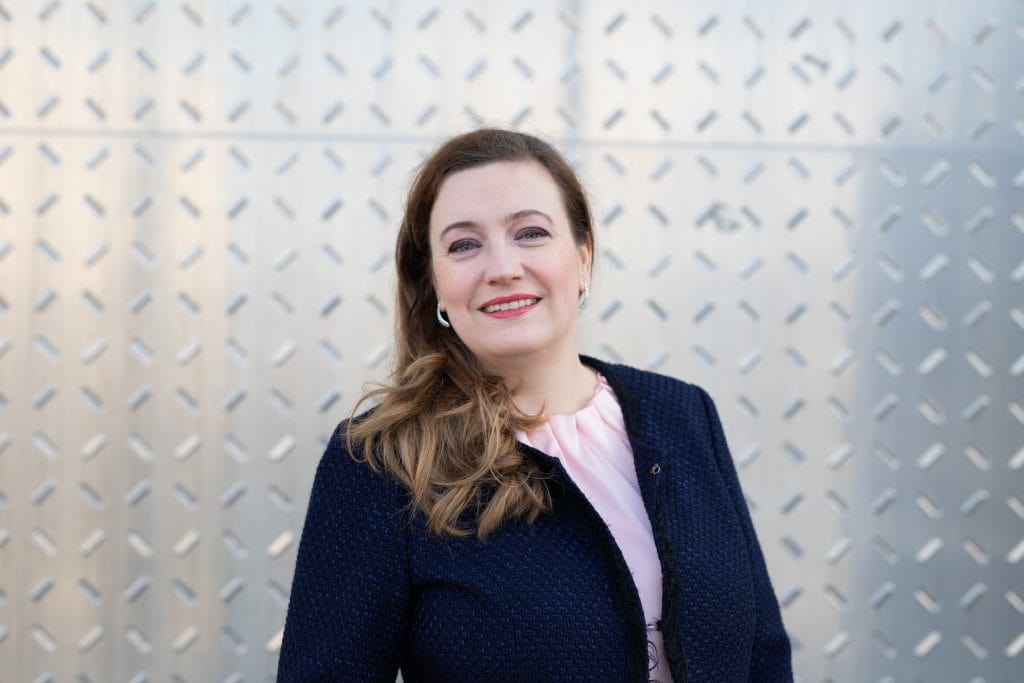Barbara Salopek holds a double Master’s in International Business and International Management. She is passionate about innovation, creative ideas and diversity and believes that these are crucial for growth and success of a business.
After having established several companies and working with innovation for ten years, she founded Vinco Innovation Consulting, which provides services for other companies to grow their business through innovative solutions and business development.
Barbara is also a speaker and holds workshops on innovation and business modeling, and is often chosen to be a mentor for budding entrepreneurs.
Can you tell us a bit about yourself?
I was born and raised in Zagreb, Croatia. I am CEO and the founder of Vinco Innovation, a company that provides expertise in innovation. I have more than 15 years of experience of working with innovation and innovation projects.
For some reason, I have always dreamt of an international career and living abroad. I have lived in three different countries (USA, Germany and Norway) and I speak three foreign languages. Settling in Norway was my dream come true. I live here with my husband and two kids. Bergen has been so kind to us and has become our family city. We love it so much.
Before moving to Norway, and after finishing my Bachelor’s degree in Zagreb (which back then was a year-long program), I was working almost 4 years in the telecommunication sector. I worked in the two biggest mobile telecom operators in Croatia. It was a very valuable experience to work in large international organizations that were quite vigorously following and setting the trends.
Why did you come to Norway and what was your experience here when trying to secure work and/or starting a business? What challenges did you face and what structures and systems enabled you in that process?
I moved to Norway in 2006. I was accepted to a master’s program at NHH Norwegian School of Economics (Norges Handelshøyskole). I hold a double master’s degree from NHH: Master’s in International Business and CEMS Master’s in International Management.
From an administrative perspective, starting a business in Norway is very easy. You need a few documents and 30.000NOK. However, building and developing a business, having it grow and succeed in the market, is a totally different story. It is difficult to build something from scratch, and I believe many will agree with me. It takes hard work, persistence, and patience. Being a foreigner and a woman increases the challenge. Norway is a great country when it comes to equality but still is not perfect. However, there are always great people, of both genders, who want to help and support you. Norway offers some funding schemes like Etablererstipend and there are some grants from Innovation Norway that help a company in the beginning. However, it is extremely important to get proof of concept and to gain customers. The idea without customer acquisition is not a good idea.
I would love to see Norway support better small and medium enterprises when it comes to public procurement and tenders. Only 40% of all tenders in Norway are won by SME, while in Ireland this number is 75%. So here lies great potential, especially today in Covid-19 times.

How did Vinco come to be? Why is there a need for a company like Vinco in Norway in particular? Who are your target groups?
I have been experimenting with different ideas and I had several companies established. They say you have to try several things before you succeed. The statistics showed that Norway was focusing on the oil and gas industry too much. After the oil price fall in 2014, Norway started waking up and focusing more on other industries, especially digital solutions. Innovation is crucial for growth and success. I have been working with innovation for more than 10 years and then at the end of 2016, I decided to start my own company that specializes in innovation.
Our customers are companies that aim to be more innovative, companies that aim to create more commercially viable ideas and an organizational culture that nourishes idea creation and innovation.
One of our latest customers was Statens Vegvesen (SVV, eng: The Norwegian Public Roads Administration). We obtained this project by winning a public tender. This is something we are really proud of. SVV wanted to see what and how other countries are managing innovation in the winter maintenance of roads. We began by conducting a survey tailored to SVV specific needs, talking to the experts in the field, and made a report with findings and recommendations. Then we conducted our own survey throughout Norway. All findings were presented to SVV with recommendations for the next steps. We see SVV is making a conscious effort to be more innovation-driven in the future.
You speak a lot and hold workshops on innovation. Can you tell us more about that?
Yes, we hold different workshops and lectures on innovation. We aim is to inspire participants, to enable them to reflect on the situation in order to be more innovative and dare to be creative. We use different tools and techniques. For example, we use psychodrama tools to understand customers better.
We always ground our workshops and lectures in scientific theory and proven data in order to deliver trustworthy insights. We like to touch upon different but related issues like diversity, psychological safety, entrepreneurship, project leadership.
How important is the internal culture for innovation in small business and big companies and how does diversity contribute to it? What is the situation in Norwegian companies with regard to innovation and diversity?
Organizational culture is at the core of innovation. We have heard so many times that culture eats strategy for breakfast, and the same holds true for innovation. No matter how great and fine-tuned a company’s innovation process is, a method, however, is not a guarantee for success in innovation. As always, people and business culture play an important role. Even with the best innovation process, without a supportive organizational culture and context, not many innovations will be produced. Introducing innovative business culture embraces psychologically safe environments where experimentation, questioning, and failures become part of the company’s DNA.
Small companies do not have a legacy that has been built for years and that they are afraid to change due to heavy investments. Smaller companies are more agile, and the change can be rolled out faster. Big companies have systems, processes, and bureaucracies that are often a burden to changes.
If I compare Norwegian and Croatian companies, I would say that trust is very high in Norway, and psychological safety is more often in place than not. Safety in Norway, in general, is high, and this can backfire because people do not have a need to experiment and hence postpone it. However, the circumstances are changing and Norway is also adapting to new trends and circumstances.

You are often chosen to mentor new entrepreneurs. What advice would you give to everybody, but especially immigrants and internationals, who want to start their own business in Norway?
I would give them advice that I got from my mother: “Building a business is like building a difficult puzzle. You have to be persistent and always look for the puzzle that would fit best, given the situation.”
I would also add: Try to help and support your international colleagues. When we help and support each other we contribute to and create a more valuable playing field.





such a great story and interview. gave a good perspective.